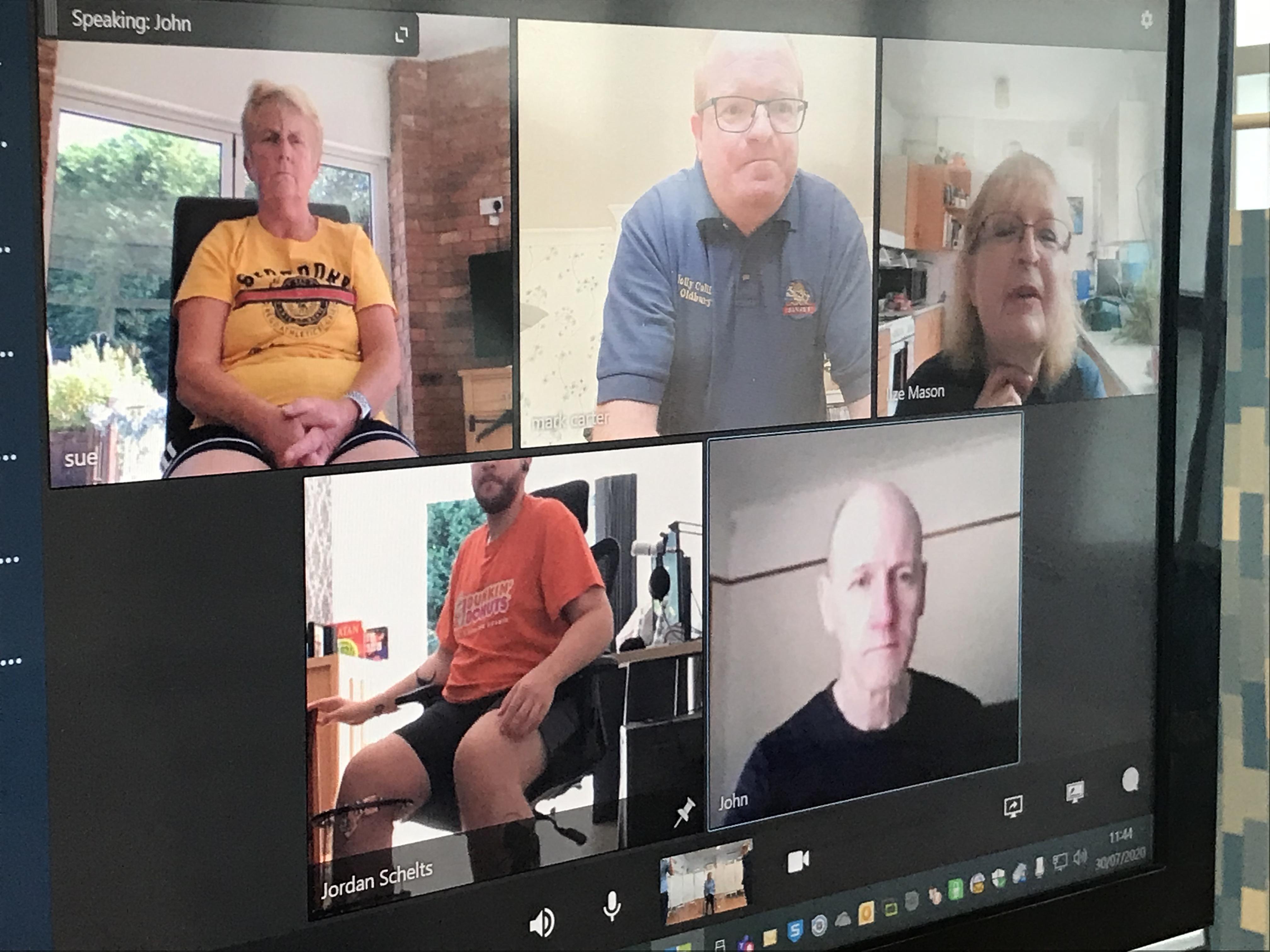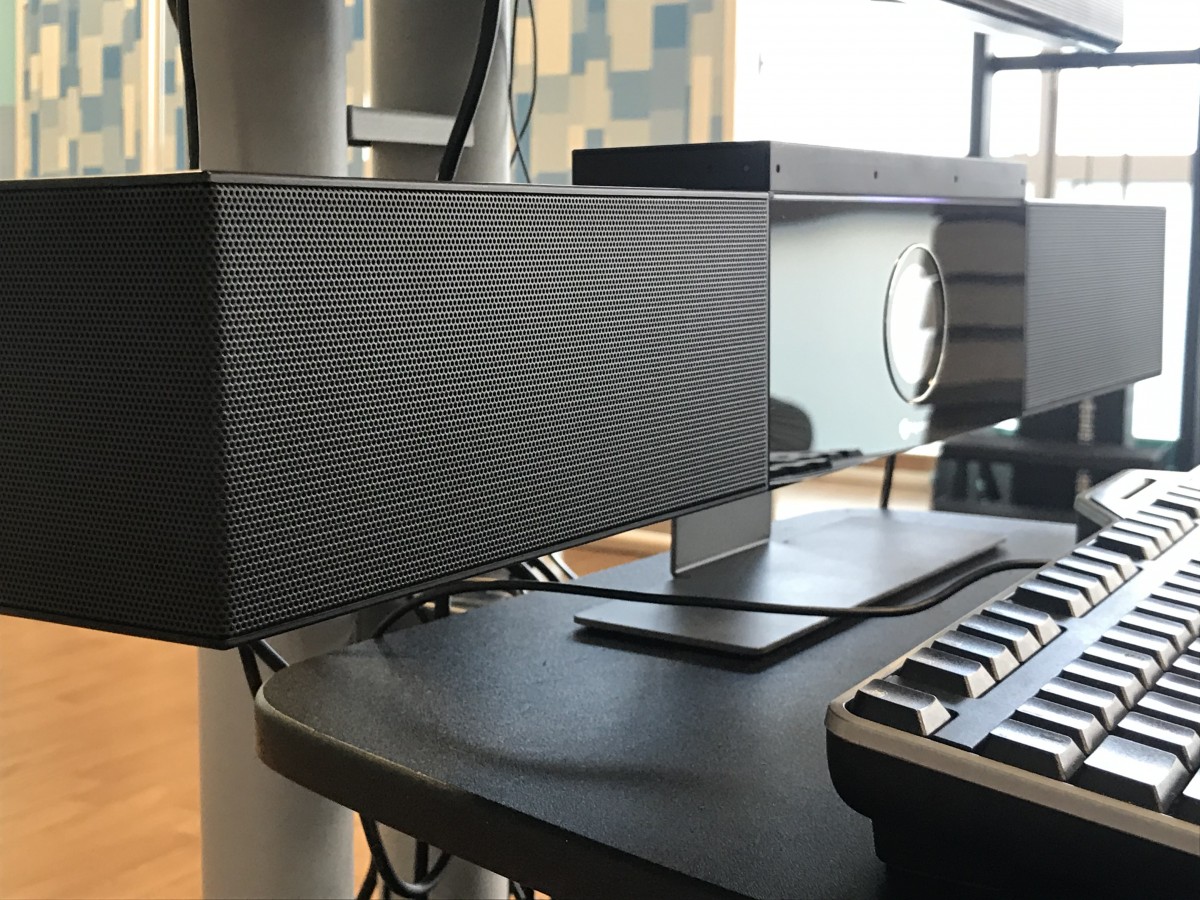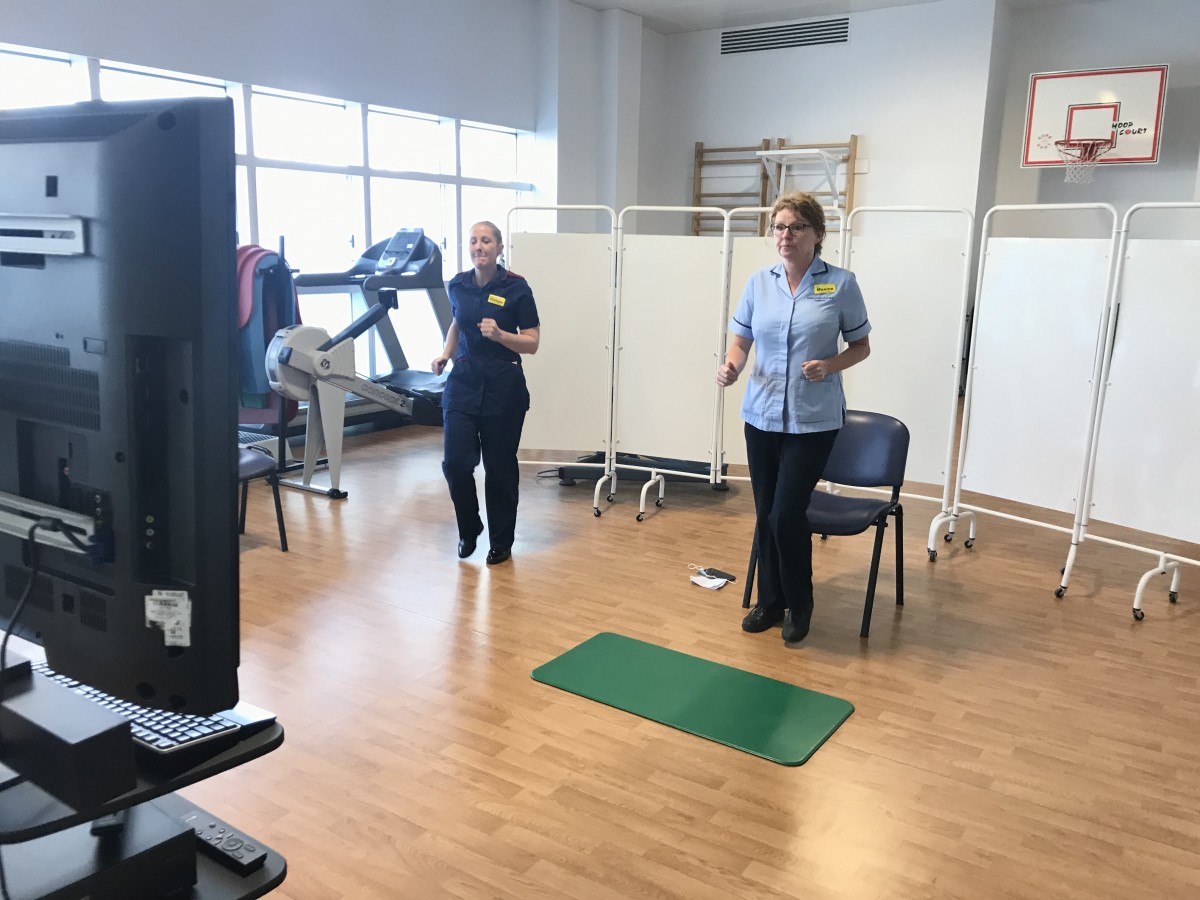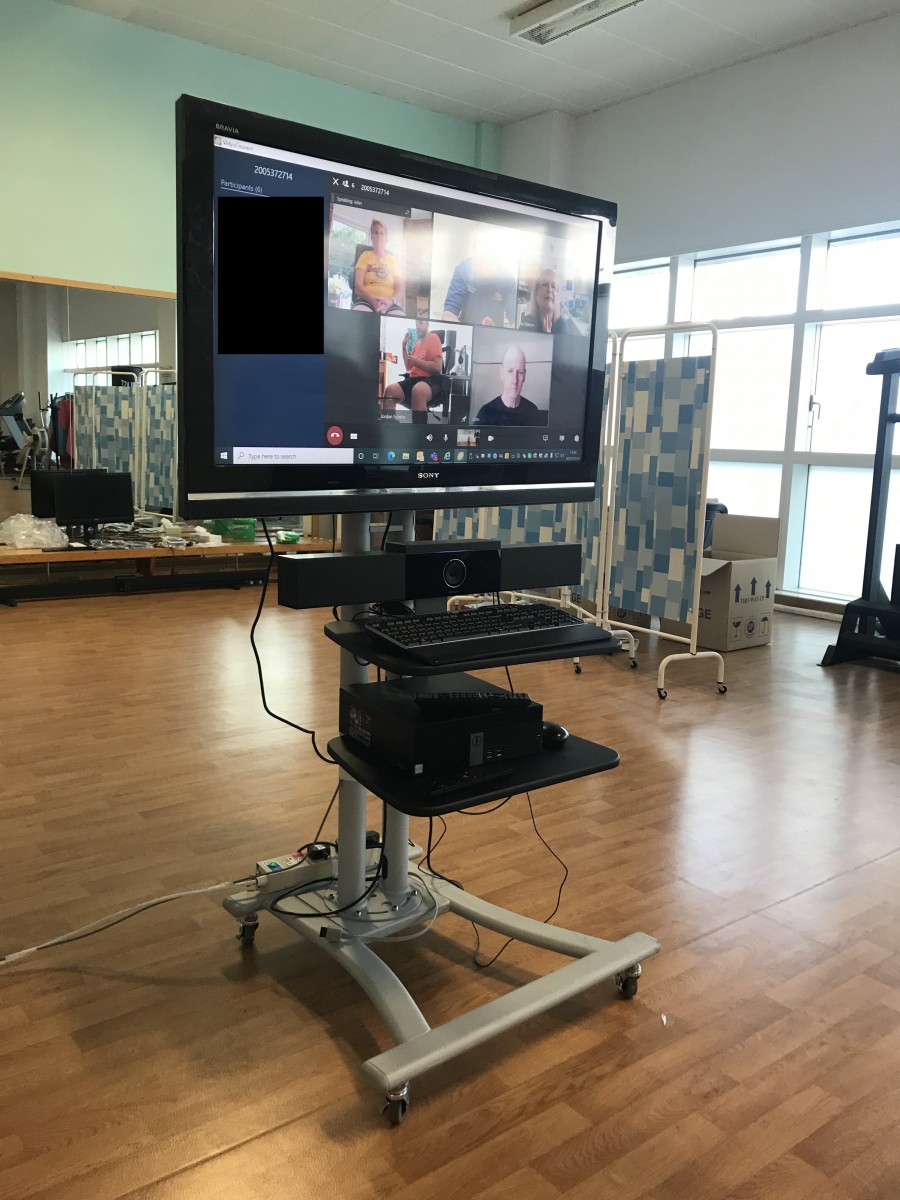New device enables virtual group meetings for physiotherapy patients

Physiotherapy patients under the care of the Therapy Services department at the Queen Elizabeth Hospital Birmingham have been able to resume their group sessions thanks to conferencing devices funded by University Hospitals Birmingham Charity.
Generous donations to the Charity have funded two Polycom Studio units that allow the Therapy Services teams to resume their group work with their patients, which had previously stopped due to the on-going COVID-19 pandemic.

The Polycom Studio units allow the groups to enjoy high quality video conferencing.
The video conferencing technology allows the team to work with their patients virtually, with the patients taking part from home, whilst the physio team lead the sessions from the hospital, using the conferencing device.
The Therapy Services Department at QEHB treats patients with a huge range of conditions, and have played a key role in helping to rehabilitate COVID-19 patients, many of whom spent a long time in hospital and require rehabilitative treatment in order to return to full health.
The units have allowed patients to remain in the safety of their own homes, whilst being able to participate in group sessions. This has had a fantastic impact on the patients both physically and psychologically.
The units are already being used to run ITU rehab classes and limb reconstruction classes, and the team will be starting up other group sessions in the near future.

The Physiotherapy staff are able to take their patients through exercises using the units.
The limb reconstruction group sees patients who have had limb injuries or surgery that has left them needing rehabilitation to strengthen their limb so that they can get back to full health. Many of these patients will have a limb in a metal frame to aid recovery, which they may have to wear for as long as 18 months.
This group have now been able to meet again thanks to the conferencing device, and the participants are grateful for this. Jordan, who broke his right tibia and fibula after being hit by a car whilst cycling, has enjoyed the virtual sessions.
He said: “I’ve been in my frame for three months so far and will be in the frame for a further three months. These virtual sessions have saved me the time and money that it would take to travel to the QE, and now I can enjoy the sessions from the comfort of my own home.”
The virtual sessions give patients the peace of mind of being safe at home. Sue, who has been a member of the group for over a year, said: “I feel safe at home, and not coming into the hospital means that I am keeping myself and my household safe. I love the camaraderie of the group, it’s wonderful to be able to chat to people who are in a similar situation to myself. Speaking with others, albeit virtually, has inspired me during this difficult time and I have been able to use my own experience to help others.”
Newer members of the group, such as Mark, have appreciated the ease with which they have been able to access the sessions. He said: “It was really easy to join the class and the software is brilliant. Two clicks and I was in!”

Staff are able to see all of their patients at once thanks to the unit, which plugs directly into the TV.
The resumption of the sessions will help patients to regain strength that they may have lost. Ilze said: “Without the physio you quickly become stiffer again and so regular sessions are really important to give focus to the exercises. The video equipment is really good as it’s possible for the team to do close-ups so we can see properly.”
For all patients in the group, the sessions provide not just physical support, but also help with the mental pressures of rehabilitation during this difficult time. John has been a member of the group for 18 months and said:
“It was a shame to lose contact with my fellow members of the group during lockdown, it is so important to get these groups started again. It has been great to see the staff again, who have been involved in my care for the last two years. They help to keep us all motivated.”
Emily Dent, Senior Physiotherapist, runs the limb reconstruction group. She said: “Our thanks go to UHB Charity for funding the two video conferencing units that have enabled us to resume our sessions virtually. It has been fantastic to be able to reconnect with our patients again, the technology makes this really smooth and allows us to give our patient the best experience possible.”
Ciara Johnston, Senior Grants Officer at University Hospitals Birmingham Charity, said: “The Charity is delighted to have been able to fund the two units for the Therapy Services Department that have enabled them to resume their group sessions.
“Since the beginning of the pandemic we have been funding projects across the Trust that have allowed patients to stay in contact with staff at the hospital, and this is a brilliant example of the difference that charitable funding can make. These units will be beneficial to hundreds of patients, enabling them to continue their rehabilitation from the safety of their homes.”


